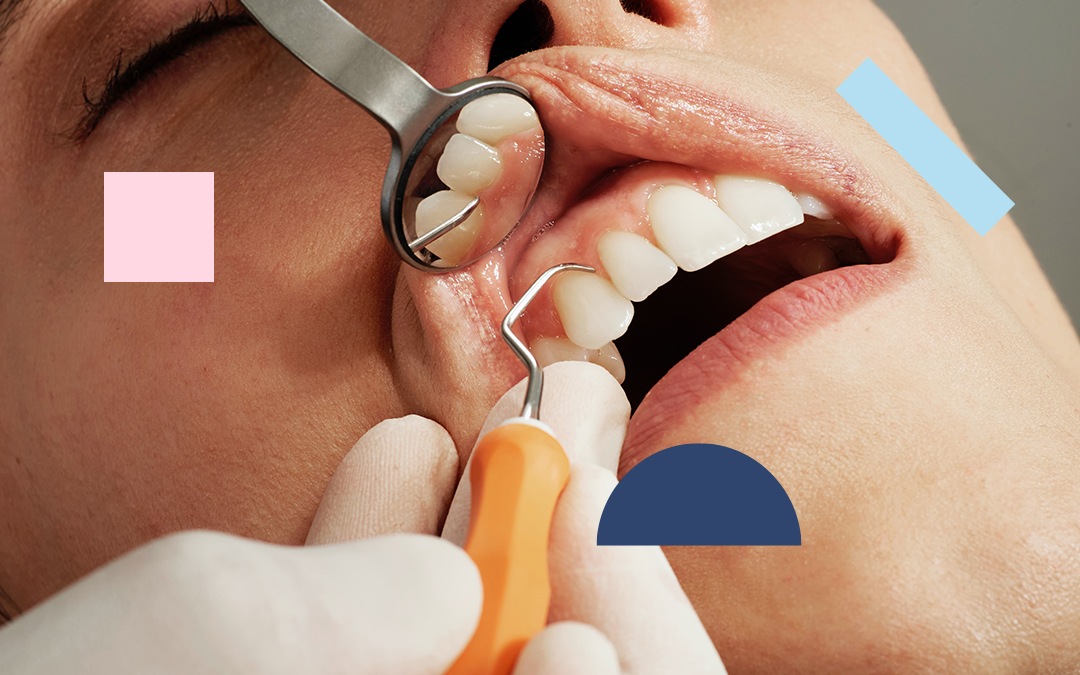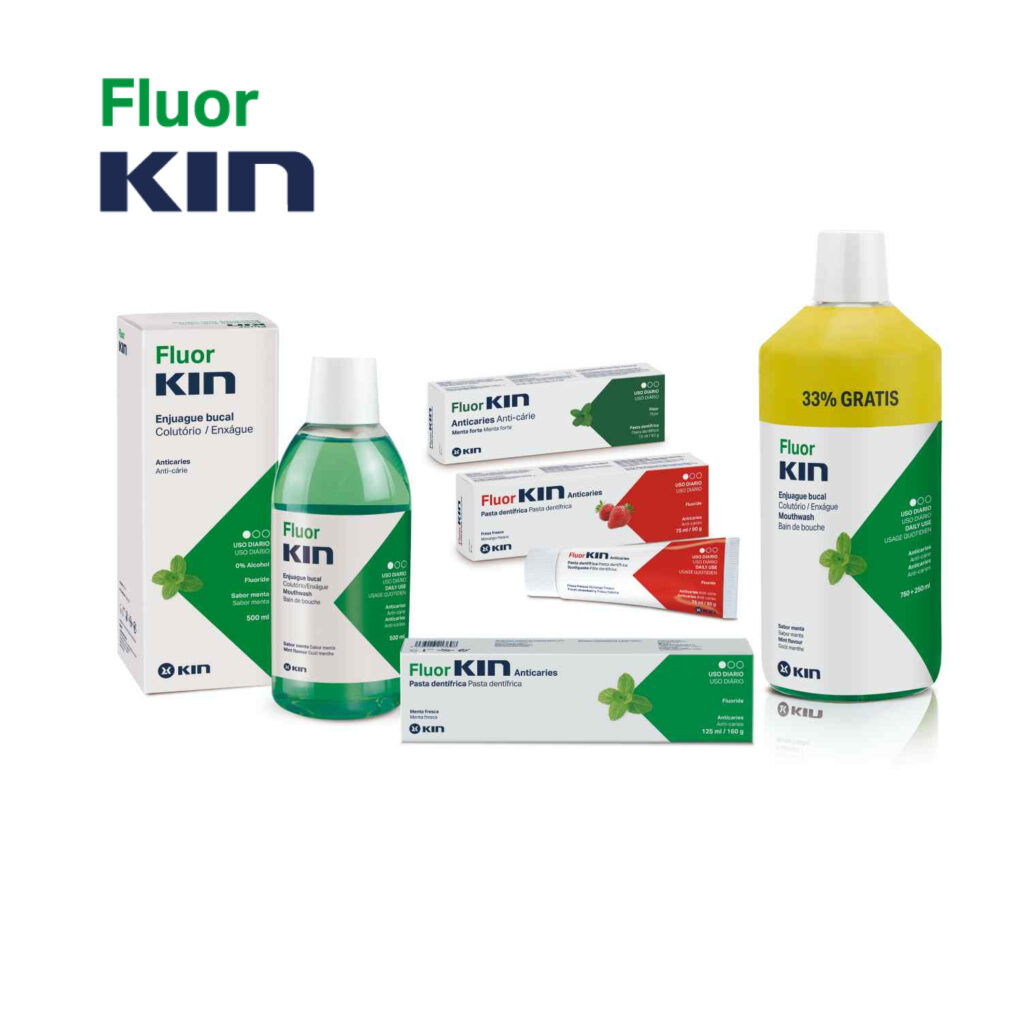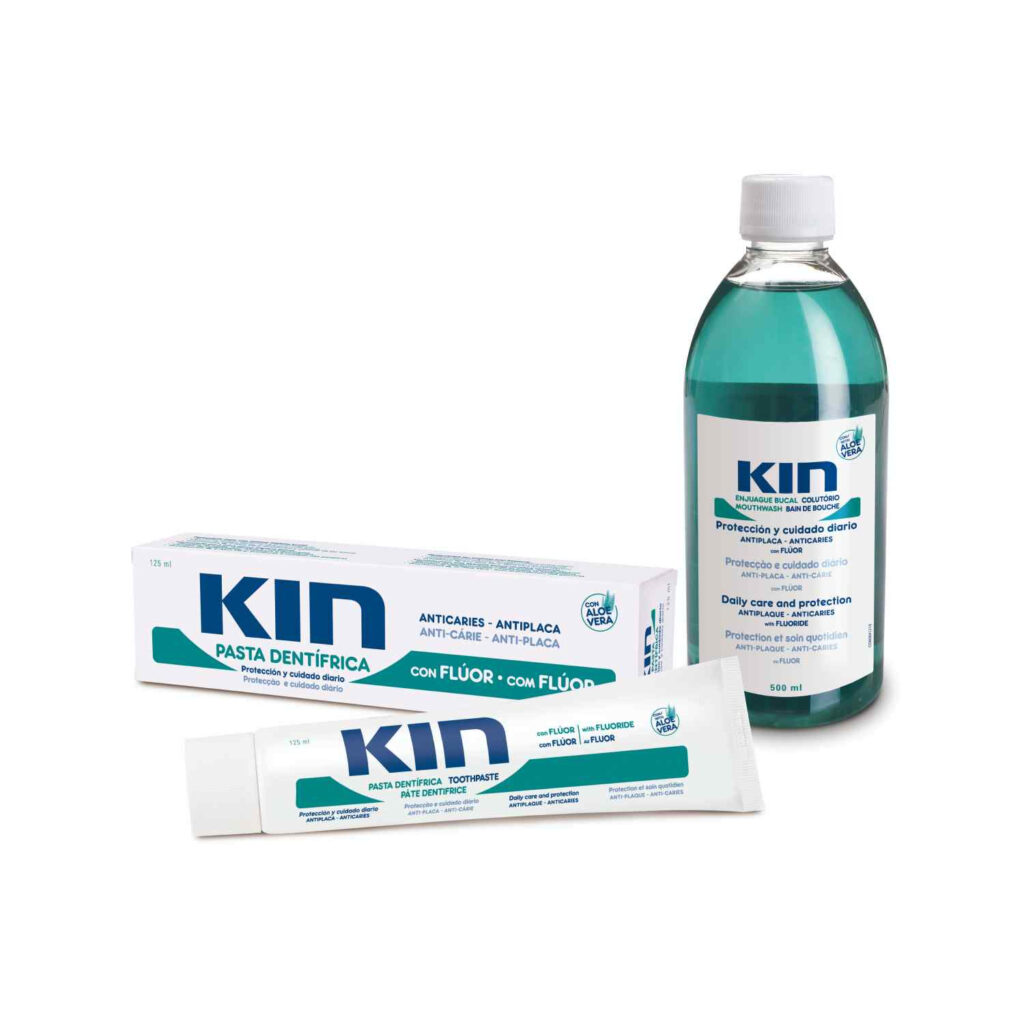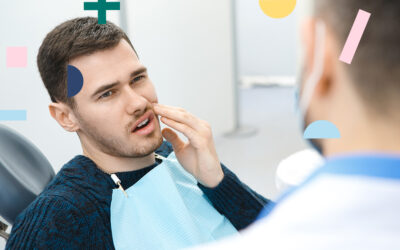The human body lives in harmony with millions of tiny micro-organisms that perform different functions. One of the places where a large number of these little creatures accumulate is the oral cavity. Do you know what all the bacteria in our mouths are doing there?
Bacteria in the mouth are not necessarily harmful, as long as they are in perfect balance. As in any environment, the mouth is full of micro-organisms that are both 'good' and 'bad', and it is the latter that should be avoided at all costs.
It is important to maintain good oral hygiene to prevent the proliferation of pathogenic microorganisms. We analyse what bacteria we have in our mouths, and how to enjoy the best oral health.
- 1 Why are there bacteria in the oral cavity?
- 2 What bacteria do we have in our mouth?
- 3 How many bacteria are in the mouth?
- 4 On what factors does the type of bacteria in the mouth depend?
- 5 Pathogenic and harmful bacteria for oral health
- 6 Discover our products for daily oral care
- 7 How to enjoy good oral health?
Why are there bacteria in the oral cavity?
The mouth is the perfect habitat for all kinds of micro-organisms to develop. It is a cavity in the human body that is directly open to the outside, with perfect conditions of humidity and oxygenation.
They can find food in the mouth, as these micro-organisms take advantage of food debris left on teeth, gums, tongue and other surfaces. However, there is a protective system that limits the type of bacteria that can live in the mouth: saliva.
There are some bacteria that have become accustomed to living in the oral cavity by adapting to our body's protective barriers. These are beneficial bacteria that, under normal conditions, can even be good for your health.
When this balance is disrupted, the 'bad' bacteria come into play. They can reproduce and colonise the mouth, causing all kinds of oral pathologies such as caries or gingivitis.
What bacteria do we have in our mouths?
All surfaces of the oral cavity are covered with bacteria whose variability will depend on the environmental conditions at any given time.
On the one hand, there are aerobic bacteria, which need oxygen to survive and multiply. On the other hand, there are anaerobic bacteria, which grow in the absence of oxygen, developing mainly at night while we sleep.
Bacteria of the genera Streptococcus, Actinomyces and Fusobacterium are mainly found in the mouth of a healthy person. The bacteria responsible for plaque are usually Streptococcus mutans.
As long as the growth of these types of bacteria is controlled by good oral hygiene, proper nutrition, and the protective action of the human body's own immune system, their presence need not be harmful.
How many bacteria are in the mouth?
It is estimated that there are an average of 100 million bacteria per millilitre of saliva in the oral cavity. There are up to 600 different species that vary from person to person depending on many environmental factors.
Among them are some bacteria considered to be 'good' bacteria, which live in harmony with the human organism and offer some protection.
After toothbrushing, the use of Mouthwash OralKIN ZeroOralKIN Zero, with hexetidine and fluoride, promotes a complete anti-plaque action to kill the bacteria responsible for tooth decay. At the same time it strengthens tooth enamel and prevents damage to the oral mucosa thanks to its 0% alcohol content.
On what factors does the type of bacteria in the mouth depend?
The concentration and composition of the oral bacterial flora depends on many types of factors:
- Availability and type of nutrients
- Temperature
- Saliva pH
- Oxygen concentration
- Immune system
- Anatomical features of the oral cavity
- Level of dental hygiene
While some factors are impossible to control, others are easily adaptable through proper health habits.
Bacteria that are pathogenic and harmful to oral health
The presence of these bacteria in the mouth is normal. They are part of what is known as 'oral bacterial flora'.The natural defenses of the organism are able to control its massive spread. Maintain a healthy mouth with daily care routines.
Discover our products for daily oral care

Upon contact with sucrose and foods containing sugars, the bacteria increase in number and form a layer of biofilm on the teeth and gums. The natural activity of bacteria is to secrete acids that attack the enamel, causing serious damage to the gums and oral mucous membranes over time.
Bacteria that cause tooth decay
Tooth decay is the result of damage caused by acidic bacteria coming into contact with tooth enamel. When oral bacteria multiply in a particular area, they work their way inwards into the tissues of the tooth.
The bacterium that is associated with caries formation is Streptococcus mutans, the most common bacterium in dental plaque. This microorganism has a great capacity to metabolise sugars from food, causing a highly acidic pH that attacks tooth enamel.
Bacteria that cause periodontitis
Gingivitis and periodontitis are gum diseases that lead to inflammation of the mucosa and subsequent tissue loss. In the gums there is a benign bacterial flora, consisting mainly of Proteobacteria, which look after the health of the gums and protect them from pathogenic bacteria.
When the level of these 'good bacteria' decreases, the balance is disturbed and pathogenic bacteria such as Streptococcus or Granulicatella grow. These are the micro-organisms that often cause periodontitis.
How to enjoy good oral health?
Oral hygiene is a key factor in preventing the spread of these 'bad bacteria'. Through brushing and the use of appropriate oral hygiene products, the remains of sugars that serve as food for these micro-organisms are removed.
Without a suitable living environment and food to grow, bacteria cannot thrive and release the acids that damage teeth and gums. Limiting consumption of sugary foods is another useful tip for the best oral health.
However, as we have seen, not all bacteria in our mouths are bad. Oral hygiene products such as Mouthwash OralKIN Zero offer a complete anti-plaque action, balancing the bacterial flora that naturally protects our mouth.


 How to relieve pain with newly placed braces?
How to relieve pain with newly placed braces? How to keep your breath fresh?
How to keep your breath fresh? 10 Tips to take care of the oral health of the little ones
10 Tips to take care of the oral health of the little ones




